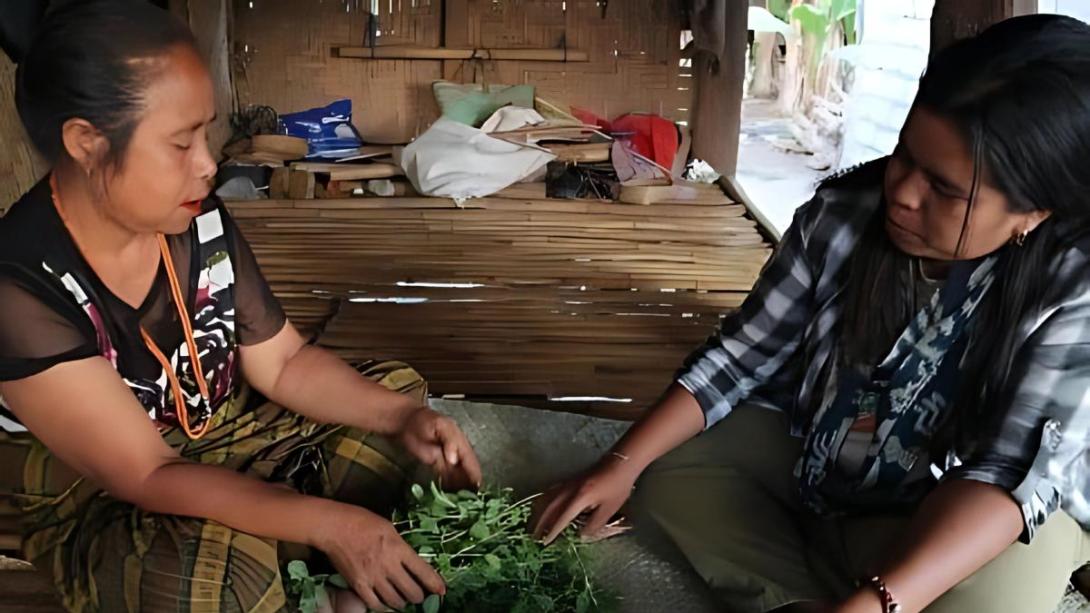
“This book is important to increase public understanding that women have a role no less important than men. Through this project, women are given free space to share their knowledge and skills.”
The goal of the project is to improve access to Tada ai (Traditional Healing) by protect the environment and the native plants through preservation and promotion the local knowledge about health concepts.
Main Objectives:
- Identify and document local wisdom related to the traditional health system
- Share the documented local wisdom with young people to encourage them to promote an environment which supports traditional health practices
- Encourage community especially young people to protect the environment
The “Tada Ai” project, led by Diana Debi Timoria of SOPAN Sumba, was created to preserve and promote traditional healing knowledge and environmental stewardship in East Sumba, Indonesia. The goal was to document Indigenous wisdom related to traditional medicine and share it with the community—particularly young people—to encourage protection of native plants and cultural values. Despite major delays caused by the COVID-19 pandemic and a natural disaster, the project successfully produced a book titled “Catatan dari Kampung: Tada Ai dan Perempuan yang Menyapa Tanaman” (Notes from the Village: Tada Ai and the Woman Who Greets the Plants), which captures stories from traditional healers, patients, and a local cultural figure.

The project involved interviews with 3 healers, 8 patients, and 1 cultural leader, with content transcribed, verified, and edited collaboratively. Challenges included local language barriers, COVID-19 transmission fears, and a major storm and flooding that devastated the region, including the project team’s homes. Despite these, the project persisted—guided by community trust and cultural respect. Volunteers played an essential role in building relationships, translating interviews, and validating plant identifications. The book features traditional plant uses, community health practices, and the deep relationship between Sumbanese women and their environment.
While the core goal of spreading the knowledge to youth and the wider community has been partially met through informal conversations, formal sharing is pending the publication of the book (86 pages, 100 copies). The project created a crucial archive of women’s wisdom in a patriarchal society and strengthened local understanding of gender equality, environmental conservation, and traditional healing. Diana noted that this project greatly enhanced her leadership, resilience, and communication skills, particularly in times of crisis and cultural sensitivity.

